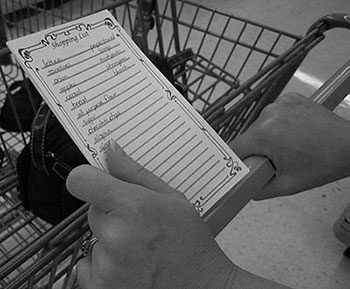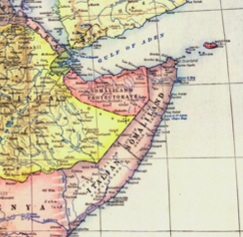Writing a Research Paper
by Owen Fourie
~ Part One ~
Without inquiring minds and research, progress would be stifled. Research is essential to our development. Bear this in mind when your assignment requires you to write a research paper. In this article, our purpose is to understand how a non-scientific, non-technical research paper is produced.
If your assignment requires a scientific or technical report, you will still find this useful, and you will see a link at the end of this post to an item that will give you further information.
Choosing a topic
When you receive your assignment, note its stipulations and take care to do precisely what it requires you to do. Unless you are given a specific subject, it will be left to you to choose a topic.
Be wise in your choice of topic and seek to deal with something that is within your area of interest, a subject about which you would like to know more. This will bring some joy into the task as well as a challenge. Do not choose something that is completely unknown by you, especially when you have a deadline to meet.
Become narrow! … Huh?
Once you have chosen your topic, narrow it down from the broad, general category to the narrow, particular point that you need to focus on and develop as you research and as you write.
If your interest is in geology, your broad category might be continents. You would need to narrow this down considerably to a specific continent, perhaps Africa. That is still too broad. Which geological feature in Africa? The Great Rift Valley. What about it? The rift is becoming wider and the continent could be splitting. Here you are beginning to narrow down your subject–despite the widening of the rift :-). The more you narrow the topic, the closer you will come to being able to write a thesis statement.
The thesis statement
Your thesis statement is the point that will motivate your research and the development of your report. This is where you will make a specific statement concerning what you believe about a particular matter. Ideally, it should aim to be controversial as you take a certain view, preferably your own unique view. Let it be unlike any other that exists.
To make the thesis statement, some quick searching should be done to see if your thoughts can be supported. For this purpose, the Internet could be useful. See “How Do I Organize an Essay?” for more about thesis statements.
Having settled on a thesis statement, you should approach your instructor to approve your choice of topic and your thesis statement. You want to be sure that you have such approval before you do any major research. The next step is to develop a working outline.
The working outline and preliminary research
A working outline is not your final outline. It is needed to kick-start you in the research process. In a sense, it is like a shopping list. You write down what you think you will need to put into your research report to establish your thesis. You will list your main points and some supporting details. With your working outline in hand, you are ready to do some research.
What you should do at this point is preliminary research. This is where you find out about the availability of the materials–the books, papers, journals, magazines, newspapers–that you will need to research your chosen subject and thesis. It is a quick survey to select relevant items and to eliminate the items that are not likely to help you. The Internet can be a useful tool in this phase as you search by using keywords for your topic.
The Internet and life beyond it
Let’s say that you are searching for “great rift valley” in Google. The first page will give you many items, and some of them could be useful. As you read, you perhaps begin to feel that you could refine your search. What about “east african rift”? You may find these items better. What you should be looking for is more than the websites listed there.
You should be looking for books, for original sources, so it would be far more rewarding to search for “east african rift + books.” There, you will find various links, some referring to books about the East African Rift Valley. Note a few of these titles and look for them in the libraries available to you.
Get to know how to use the catalog system in the library. Remember that librarians are there to assist you to track down any item that is not immediately available. Remember, too, that research involves more than simply culling information from the Internet. The Internet is a useful tool, but you do need to do your own reading in original sources.
The bibliographies in many Wikipedia articles are also useful for finding books and articles relevant to your subject. Academic databases will help you in your research. Search for “online academic databases,” and you will find more than you will need.
If your preliminary research reveals a lack of sources for your subject, you should consider choosing a different topic. Even if the original subject has adequate information, your preliminary research could indicate that you need to change your thesis statement. Remember to get your instructor’s approval for any changes.
Revising your outline
Once your preliminary research is finished, it is time to look again at your outline to see if changes are needed. Your initial research should give you a feel for the subject and the direction it should take to support your thesis, and your outline should be revised before you enter into the in-depth research phase. You will find information about outlining here.
In Part Two of this procedure for writing a research report, we’ll begin with the in-depth research phase.
—–
What have you found to be really difficult about thesis statements? What benefits or frustrations have you experienced on the Internet while tracking down books you have needed for research? Your comments, observations, and questions are welcome.
The item at the following link deals with scientific or technical research reports:
http://www.ruf.rice.edu/~bioslabs/tools/report/reportform.html
Here are more articles to help you with English words, grammar, and essay writing.
Copyright © 2010 by English Essay Writing Tips www.englishessaywritingtips.com


